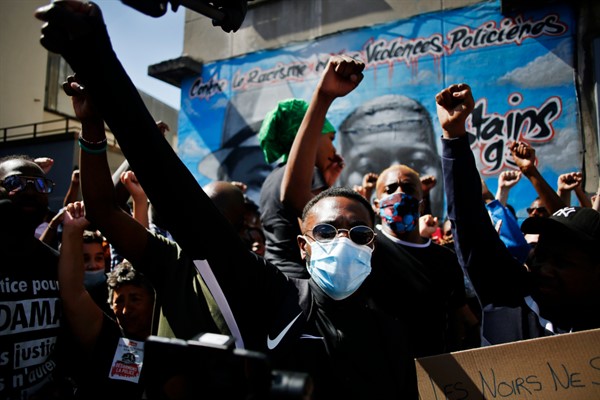I first met Salim, a 35-year-old French citizen of Algerian origin, about 10 years ago at a cafe near Levallois, the Parisian banlieue—or peri-urban ghetto—where he lived at the time. In the course of our wide-ranging discussion about French history and identity, part of the fieldwork for my doctoral dissertation, he told me that while it is possible for some immigrants to become “French,” that isn’t the case for everyone.
“To actually be French, you have to forget yourself a little bit [and] adopt the behaviors that are imposed on us,” he said. “There is a path to follow to become French.”
What it means to be French—outside of official legal definitions—has long been subject to debate in France. In recent years, that debate has become increasingly politicized and—with the rise of France’s anti-immigrant, far-right—increasingly entwined with the question of immigration. Now, as next year’s presidential election approaches, and as recent social movements across Europe demand a reckoning with the continent’s colonial history, what French identity actually means is once again a central feature of political and societal debates.

